Find A Professional
More Items From Ergsy search
-

What is a hip replacement?
Relevance: 100%
-

Can both hips be replaced at the same time?
Relevance: 79%
-

What is minimally invasive hip replacement surgery?
Relevance: 70%
-

Hip replacement
Relevance: 67%
-
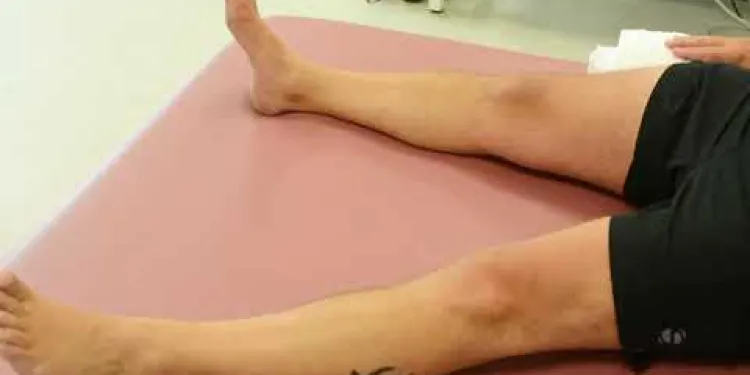
Joint School - Hip Exercises
Relevance: 66%
-

How long does a hip replacement surgery take?
Relevance: 61%
-

Do I need a Hip Replacement?
Relevance: 61%
-

Total hip replacement
Relevance: 58%
-

Total Hip Replacement
Relevance: 57%
-

What are the risks associated with hip replacement surgery?
Relevance: 56%
-

How much does hip replacement surgery cost in the UK?
Relevance: 54%
-

Total hip replacement at Northumbria Healthcare
Relevance: 53%
-

What British Council Scholarships/Bursaries may be available to help me with the education costs of my child?
Relevance: 53%
-
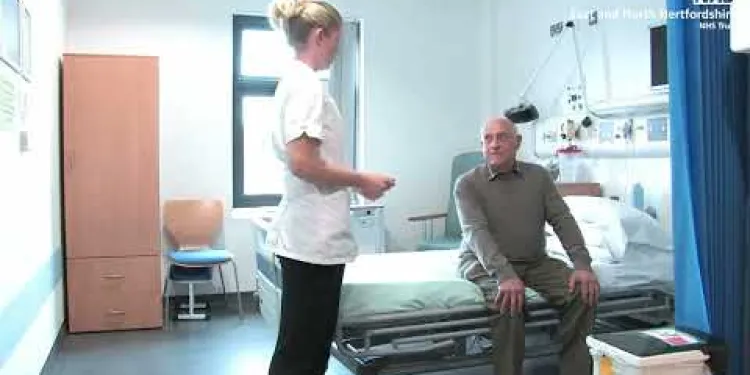
A journey to hip surgery
Relevance: 49%
-

Osteoarthritis of the Hip
Relevance: 49%
-

Can relationship problems be resolved to improve mental health?
Relevance: 48%
-

Are there different types of hip implants?
Relevance: 47%
-

Can ending a toxic relationship improve my mental health?
Relevance: 47%
-
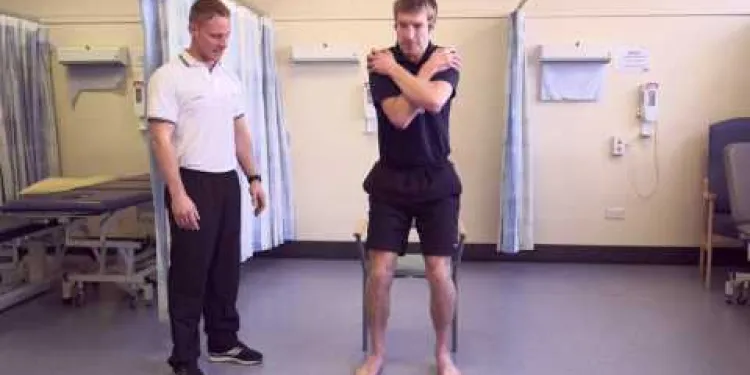
Exercises to help your lateral hip pain
Relevance: 47%
-

Knee replacement
Relevance: 47%
-

Is it better to stay in a relationship for the sake of not being alone?
Relevance: 46%
-

What type of anaesthesia is used during hip replacement surgery?
Relevance: 46%
-

Will I need physical therapy after a hip replacement?
Relevance: 46%
-

What are the benefits of relationship counselling?
Relevance: 45%
-

Is it normal to feel sad in a relationship sometimes?
Relevance: 45%
-

Can physical symptoms be linked to relationship-induced depression?
Relevance: 43%
-

Does the National Trust offer internships?
Relevance: 42%
-

What is the recovery time for a hip replacement?
Relevance: 42%
-

How can a relationship contribute to depression?
Relevance: 42%
-

Osteoarthritis of the Hip
Relevance: 42%
-
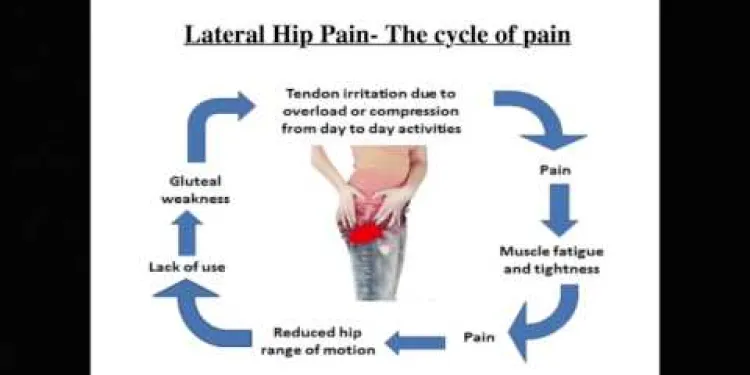
Advice - How to manage your lateral hip pain
Relevance: 41%
-

What are the signs that my relationship is making me depressed?
Relevance: 39%
-

Are there any self-care strategies to cope with relationship-induced depression?
Relevance: 38%
-

Are there any apprenticeship routes to becoming an NHS nurse?
Relevance: 37%
-

7 Signs Your Relationship is Making You Depressed
Relevance: 36%
-
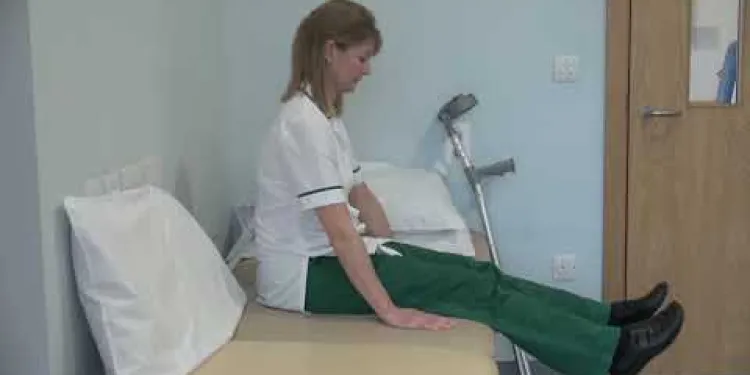
Hip replacement - getting into bed
Relevance: 35%
-

How do I prepare for hip replacement surgery?
Relevance: 34%
-

How long do hip replacement implants last?
Relevance: 31%
-

How does the new Sleep Apnea Chip work?
Relevance: 31%
-

Is it possible to feel trapped in a relationship?
Relevance: 30%
Understanding Hip Replacement
What is Hip Replacement?
Hip replacement, also known as hip arthroplasty, is a surgical procedure in which a damaged hip joint is replaced with a prosthetic implant. This surgery is commonly performed to relieve hip pain and improve mobility for individuals suffering from arthritis, hip fractures, or other joint-related conditions.
Why Undergo Hip Replacement?
Many patients in the United Kingdom choose hip replacement surgery to alleviate chronic hip pain, improve joint function, and regain the ability to perform everyday activities. Conditions such as osteoarthritis, rheumatoid arthritis, and traumatic injuries can lead to significant joint damage that may necessitate this surgical option.
The Procedure
During hip replacement surgery, the damaged portions of the hip joint are removed and replaced with artificial components, typically made of metal, ceramic, or plastic. The procedure can be performed under general or spinal anaesthesia and usually requires a hospital stay of a few days. Recovery involves physical therapy to restore movement and strength.
Recovery Time
Recovery times can vary, but most patients in the UK can expect to resume many normal activities within 6 to 12 weeks after surgery. However, full recovery and the ability to engage in more strenuous activities may take up to a year. Adhering to a post-operative rehabilitation plan is crucial for a successful outcome.
Benefits and Risks
Hip replacement surgery offers significant benefits, including reduced pain, improved mobility, and a better quality of life. However, as with any major surgery, there are risks involved, such as infection, blood clots, and implant dislocation. Discussing potential risks and benefits with your surgeon is essential for making an informed decision.
NHS and Private Hip Replacement
In the UK, hip replacement surgery is available through the NHS and private healthcare providers. While NHS treatments are covered and may involve longer waiting times, private healthcare can offer faster access to surgery at a cost. Patients should consider their options and consult with their GP and specialist for the best course of action.
Understanding Hip Replacement
What is Hip Replacement?
Hip replacement is when doctors replace a sore hip joint with a new one. People get this surgery to stop hip pain and help them move better. It is often done for those who have arthritis or a broken hip.
Why Have Hip Replacement?
Many people have this surgery to stop hip pain and help them do daily activities. Problems like arthritis or injuries can damage the hip. A new hip can make things better.
The Procedure
In surgery, the doctor takes out the damaged part of the hip and puts in a new one. The new hip is made of metal, ceramic, or plastic. You will need to stay in the hospital for a few days. After surgery, exercises will help you move and get stronger.
Recovery Time
It can take time to get better. Most people in the UK can do normal things again in 6 to 12 weeks. Getting fully better can take up to a year. It is important to follow the doctor's plan to get the best results.
Benefits and Risks
Having hip replacement can really help. You will probably have less pain and move better. But, like with all big surgeries, there are some risks. These risks include infection and blood clots. Talk to your doctor to understand more about these risks and benefits.
NHS and Private Hip Replacement
In the UK, you can have hip replacement surgery with the NHS or private hospitals. NHS treatment is free but might take longer. Private care can be quicker but costs money. Talk with your family doctor to decide what is best for you.
Frequently Asked Questions
What is a hip replacement?
A hip replacement is a surgical procedure in which a damaged or worn-out hip joint is replaced with an artificial implant, often made of metal, ceramic, and plastic components.
Who is a candidate for a hip replacement?
Candidates for hip replacement are typically those suffering from severe hip pain and disability due to conditions like osteoarthritis, rheumatoid arthritis, or hip fractures.
How long does a hip replacement surgery take?
Hip replacement surgery generally takes around 1 to 2 hours to complete, but the total time may be longer due to preparations and recovery immediately post-operation.
What type of anaesthesia is used during hip replacement surgery?
Hip replacement surgeries can be performed under general anaesthesia, where you are entirely unconscious, or regional anaesthesia, such as a spinal block, where you are numb from the waist down.
What are the risks associated with hip replacement surgery?
Risks include infection, blood clots, hip dislocation, differences in leg length, and implant loosening or wear over time.
What is the recovery time for a hip replacement?
Recovery times can vary, but many patients are able to resume normal activities within 3 to 6 months. Full recovery can take up to 12 months.
Will I need physical therapy after a hip replacement?
Yes, physical therapy is typically recommended after a hip replacement to help restore strength, flexibility, and mobility.
How long do hip replacement implants last?
Most hip implants last between 15 to 20 years, although some may last longer depending on factors such as the patient's activity level and weight.
Are there different types of hip implants?
Yes, there are different types of hip implants including cemented and uncemented implants, as well as different materials such as metal-on-plastic, ceramic-on-ceramic, or metal-on-metal.
Can both hips be replaced at the same time?
In some cases, bilateral hip replacement may be performed, where both hips are replaced during the same surgery. This depends on the patient’s overall health and specific circumstances.
What is minimally invasive hip replacement surgery?
Minimally invasive hip replacement surgery involves smaller incisions and aims to reduce muscle damage, leading to potentially quicker recovery times and less postoperative pain.
Will I be able to return to normal activities after hip replacement?
Most patients can return to their normal activities, including walking, driving, and low-impact sports. However, high-impact activities may need to be limited.
How much does hip replacement surgery cost in the UK?
The cost can vary widely, but for private treatment, it can range from £10,000 to £15,000. The NHS covers the procedure without direct charges to the patient.
How do I prepare for hip replacement surgery?
Preparation might include preoperative tests, exercises to strengthen muscles, and planning for home care during the recovery period.
What can I expect during the first few weeks after hip replacement surgery?
In the first few weeks, you will likely experience some pain and need to use mobility aids like walkers or crutches. Follow your surgeon’s guidance and attend physical therapy sessions.
What is a hip replacement?
A hip replacement is a surgery. It helps fix a hip joint that hurts or is broken.
The doctor takes out the old, hurt joint. They put in a new, fake joint. This can help you move better and feel less pain.
Talk to your doctor or a nurse if you have questions. You can also watch videos or look at pictures to understand more.
A hip replacement is an operation where a doctor takes out a broken or old hip joint. They put in a new one made of metal, ceramic, and plastic.
Who might need a new hip?
Some people have very sore hips. This can happen if the hip is not healthy. A doctor can decide if someone needs a new hip.
- If walking hurts a lot and does not get better.
- If other treatments like medicine or therapy don't help.
- If the hip problem makes life very hard.
Always talk to a doctor to see what is best for you.
People who might need a new hip are those who have lots of hip pain and problems moving. This can happen because of things like bad arthritis or hip injuries.
How long does a hip replacement take?
A hip replacement is an operation. Doctors fix a new hip joint. This can take about 1 to 2 hours.
If you want help reading, you can:
- Ask someone to read with you.
- Use a computer to read the words aloud.
- Point to the words with your finger.
When you have hip replacement surgery, it usually takes about 1 to 2 hours. But it can take longer because of getting ready and taking some time to wake up after the operation.
What kind of medicine helps you sleep during hip surgery?
When doctors do hip surgery, they give you special medicine. This medicine helps you sleep and not feel any pain.
There are a few kinds of this sleep medicine:
- General Anaesthesia: This makes you sleep deeply. You won’t wake up until the surgery is over.
- Regional Anaesthesia: This medicine numbs a big part of your body. You might stay awake but won't feel anything in the surgery area.
The doctor will talk with you and choose the best one for you. If you feel worried, you can ask for a toy or a comforting item to hold. Listening to music or having a friend with you can help you feel better too.
Doctors can do hip replacement surgeries in two ways. One way is using special medicine that makes you go to sleep completely. This is called general anaesthesia. The other way is using special medicine that makes you feel nothing from your waist down. This is called a spinal block.
What could go wrong with a new hip surgery?
There are some problems that can happen:
- You might get an infection, which is when germs make you sick.
- You could get blood clots. These are lumps of blood that can block your veins.
- Your hip might move out of place. This is called a dislocation.
- Your legs might end up being different lengths.
- The new hip part could come loose or wear out as time goes by.
How long does it take to get better after a hip replacement?
Getting better after a hip replacement takes time. Most people start feeling better in about 3 to 6 months.
Here are some tips to help you:
- Rest a lot and take breaks.
- Follow the doctor's advice.
- Do exercises to help your hip get stronger. A physiotherapist can show you how.
- Ask someone to help if you need it.
Remember to go to your doctor check-ups to see how you are healing.
How long it takes to get better can be different for everyone. Many people can start doing normal things again in 3 to 6 months. To feel completely better, it might take up to 12 months.
If you find reading hard, you can ask someone to help you understand. You can also use tools like audiobooks or text-to-speech apps to listen to the information.
Will I need help moving after a new hip?
After getting a new hip, you might need some help to move and get better. This is called "physical therapy." It helps you learn how to walk and do things safely.
Here are some tools and ideas to make it easier:
- Ask a helper: You can ask a friend or family member to help you do the exercises.
- Use a stick or walker: These can help you walk safely as you get better.
- Take small steps: It's okay to go slowly. Take small steps to get stronger day by day.
Yes, after you get a new hip, doctors will usually say you should try physical therapy. Physical therapy helps you get stronger and move better.
How long do hip replacements last?
A hip replacement can last a long time. Most last 15 to 20 years.
To take care of your hip:
- Walk and exercise gently.
- Eat healthy food to stay strong.
- See your doctor if you have pain.
If you need help understanding, ask a friend or family member.
Most hip implants work well for 15 to 20 years. Some might last even longer. How long they last can depend on how active you are and your weight.
Are there different types of hip implants?
Yes, there are different kinds of hip implants.
A doctor can help choose the best one for each person.
Some main types are:
- Metal: These are made from strong metal.
- Ceramic: These are made from a special hard material.
- Plastic: These have smooth plastic parts.
Tip: Pictures and videos can help understand better.
Tool: Use a magnifying glass to read the text clearly.
Yes, there are different kinds of hip implants. Some are put in with cement, and some are put in without cement. They can be made from different materials like metal and plastic, metal and metal, or ceramic and ceramic.
--- Here are some tips if this information feels tricky: 1. Break it down: Look at one small part at a time. 2. Use pictures: Find pictures of hip implants to see what they look like. 3. Ask for help: Talk to someone who knows about this, like a doctor. 4. Tools: You could use apps or tools that read text out loud. 5. Practice: Keep practicing to understand better.Can you have surgery on both hips at once?
Sometimes, doctors might replace both hips in one surgery. This is called bilateral hip replacement. Whether this happens depends on how healthy the person is and what they need.
What is minimally invasive hip replacement surgery?
Minimally invasive hip replacement surgery is a special way doctors fix your hip. They make a small cut to fix it, so you can get better faster.
Doctors use tiny tools and a camera. This helps them see inside your hip. The small cut means less pain and a quicker recovery.
To understand more, you can ask your doctor questions. You can also watch simple videos online to see how it works. Talking with family or friends can help too.
Minimally invasive hip replacement surgery uses smaller cuts in the body. This helps not to hurt the muscles too much. It can help you get better faster and feel less pain after the operation.
Can I do my usual activities after I get a new hip?
After you get a new hip, you might wonder if you can go back to your regular activities. It's important to follow your doctor's advice to get better. You can use tools like a walker or a cane to help you move safely. Take your time and ask for help if you need it.
Most people can go back to their normal activities. This means they can walk, drive, and play some gentle sports. But they might need to do less of the tough sports.
How much does hip replacement surgery cost in the UK?
A hip replacement is when a doctor gives you a new hip. It can cost a lot of money.
In the UK, hip replacement might be free if you use the NHS. But sometimes you may choose to go private, which costs more.
If you pay for it yourself, it can be around £10,000 to £15,000.
If this feels tricky to understand, you can ask someone you trust to explain it. Using clear pictures or talking with a doctor can also help you learn more.
The price can be different. For private care, it might cost from £10,000 to £15,000. The NHS pays for it, so patients don't have to pay directly.
How can I get ready for hip surgery?
Getting ready for hip surgery can help make things easier. Here are some simple steps and tips to help you:
- Talk to your doctor. Ask questions if you don't understand something.
- Make your home safe. Remove anything you might trip over, like loose rugs.
- Ask for help from family or friends. They can help you with things like cooking or getting dressed.
- Use tools like a raised toilet seat or crutches to help you move around.
- Eat healthy foods and drink water to keep your body strong.
- Practice using a chair with arms to help you stand up easily.
These steps can help you feel ready for your surgery and recovery.
Getting ready for surgery might include tests before the operation, doing exercises to make your muscles stronger, and thinking about how you will be cared for at home while you get better.
What will happen after my hip surgery?
In the first few weeks after your hip surgery, you might feel some pain. This is normal. Your doctor will help you with medicine to feel better.
You will also need to do some exercises to get your hip strong again. A therapist will show you how to do these exercises. It is important to try your best.
You might need some tools to help you move around, like crutches or a walker. These will help you walk safely.
Remember to ask for help if you need it. Family, friends, or doctors are there to support you.
At first, you might feel some pain. You may need to use things like walkers or crutches to help you move. Listen to your doctor and go to your physical therapy appointments.
Useful Links
Useful links from: Total hip replacement
- NHS - Hip replacement Comprehensive guide on hip replacement procedures, reasons for the surgery, preparation, recovery, and risks, provided by the NHS.
- Versus Arthritis - Hip replacement surgery Detailed information on hip replacement surgery, including when it might be needed and what to expect, from the UK's leading arthritis charity.
- Arthritis Action - Hip Surgery Insight into hip surgery for arthritis sufferers, covering preparation, surgery details, and recovery, provided by Arthritis Action.
- Nuffield Health - Hip replacement surgery Information on hip replacement surgery including what happens during the procedure and the benefits, provided by Nuffield Health, a UK healthcare charity.
Useful links from: A journey to hip surgery
- NHS - Hip Replacement The official NHS page providing comprehensive information about hip replacement surgery, including reasons for the procedure, how it is performed, recovery tips, and potential risks.
- Versus Arthritis Versus Arthritis offers detailed information on hip replacement surgery, including the procedure, preparation, recovery, and personal stories. It also covers how the surgery can help with arthritis pain and mobility.
- Arthritis Action - Hip Surgery Arthritis Action provides insights and advice on hip replacement surgery, covering how to prepare for the operation, what to expect during recovery, and post-surgery care to manage arthritis.
- Age UK - Hip Replacement Surgery Age UK offers a guide on hip replacement surgery specifically tailored for older adults, including what to consider before surgery, recovery tips, and how to manage daily activities post-surgery.
Useful links from: Having a hip replacement - Part Two: Recovery
- NHS: Recovering from hip replacement surgery This NHS page provides detailed information on what to expect and how to manage recovery after hip replacement surgery, including advice on mobility, pain management, and resuming daily activities.
- Versus Arthritis: Hip Replacement - Recovery Versus Arthritis offers guidance on recovering from hip replacement surgery, covering physiotherapy, exercises, and lifestyle adjustments to help with recovery.
- Royal College of Surgeons: Recovery from hip replacement surgery The Royal College of Surgeons provides a detailed guide on recovering from hip replacement surgery, including tips on managing pain, expected milestones, and precautions.
- Age UK: Hip Replacement Recovery Advice Age UK's guide covers recovery from hip replacement surgery for older adults, offering tips on physiotherapy, home adaptations, and managing daily life during the recovery period.
Useful links from: Total hip replacement at Northumbria Healthcare
- Northumbria Healthcare NHS Foundation Trust Find comprehensive information about hip replacement services, patient resources, and recovery information provided by Northumbria Healthcare NHS Foundation Trust.
- NHS - Hip Replacement The official NHS page detailing hip replacement surgery, including indications, how it is performed, recovery, and risks involved.
- Versus Arthritis - Hip Replacement Versus Arthritis offers detailed insights into hip replacement surgery, preparation, post-operative care, and patient stories.
- Age UK - Hip Replacement Age UK provides advice and information on hip replacement surgery, especially tailored for older adults, covering pre-surgery preparation and recovery tips.
Useful links from: Total Hip Replacement
- NHS - Total Hip Replacement The NHS official page on hip replacement, covering information about the procedure, risks, recovery, and alternatives.
- Versus Arthritis - Hip Replacement Surgery Versus Arthritis provides an in-depth guide on hip replacement surgery, including what to expect before, during, and after the operation.
- Arthritis Action - Total Hip Replacement Arthritis Action offers detailed advice and support on living with arthritis, including information on hip replacement surgery.
- The British Hip Society - Patient Information The British Hip Society provides resources and information for patients undergoing hip replacement surgery, including FAQs and recovery tips.
Useful links from: Hip replacement - getting into bed
- NHS - Getting in and out of bed after hip replacement Guidance from the NHS on how to safely get in and out of bed following a hip replacement, including useful techniques and tips.
- Versus Arthritis - Hip Replacement Surgery Versus Arthritis provides comprehensive information on hip replacement surgery, including recovery tips and how to manage daily activities like getting into bed.
- Age UK - Hip replacement recovery guide Age UK's guide offers detailed advice on recovering from a hip replacement, including practical tips for getting in and out of bed, and adjusting to home life post-surgery.
- NHS Inform - Recovering from hip replacement surgery NHS Inform provides detailed information on the recovery process after hip replacement surgery, including advice on getting in and out of bed and other mobility tips.
- Ergsy carfully checks the information in the videos we provide here.
- Videos shown by Youtube after a video has completed, have NOT been reviewed by ERGSY.
- To view, click the arrow in centre of video.
- Most of the videos you find here will have subtitles and/or closed captions available.
- You may need to turn these on, and choose your preferred language.
- Go to the video you'd like to watch.
- If closed captions (CC) are available, settings will be visible on the bottom right of the video player.
- To turn on Captions, click settings .
- To turn off Captions, click settings again.
More Items From Ergsy search
-

What is a hip replacement?
Relevance: 100%
-

Can both hips be replaced at the same time?
Relevance: 79%
-

What is minimally invasive hip replacement surgery?
Relevance: 70%
-

Hip replacement
Relevance: 67%
-

Joint School - Hip Exercises
Relevance: 66%
-

How long does a hip replacement surgery take?
Relevance: 61%
-

Do I need a Hip Replacement?
Relevance: 61%
-

Total hip replacement
Relevance: 58%
-

Total Hip Replacement
Relevance: 57%
-

What are the risks associated with hip replacement surgery?
Relevance: 56%
-

How much does hip replacement surgery cost in the UK?
Relevance: 54%
-

Total hip replacement at Northumbria Healthcare
Relevance: 53%
-

What British Council Scholarships/Bursaries may be available to help me with the education costs of my child?
Relevance: 53%
-

A journey to hip surgery
Relevance: 49%
-

Osteoarthritis of the Hip
Relevance: 49%
-

Can relationship problems be resolved to improve mental health?
Relevance: 48%
-

Are there different types of hip implants?
Relevance: 47%
-

Can ending a toxic relationship improve my mental health?
Relevance: 47%
-

Exercises to help your lateral hip pain
Relevance: 47%
-

Knee replacement
Relevance: 47%
-

Is it better to stay in a relationship for the sake of not being alone?
Relevance: 46%
-

What type of anaesthesia is used during hip replacement surgery?
Relevance: 46%
-

Will I need physical therapy after a hip replacement?
Relevance: 46%
-

What are the benefits of relationship counselling?
Relevance: 45%
-

Is it normal to feel sad in a relationship sometimes?
Relevance: 45%
-

Can physical symptoms be linked to relationship-induced depression?
Relevance: 43%
-

Does the National Trust offer internships?
Relevance: 42%
-

What is the recovery time for a hip replacement?
Relevance: 42%
-

How can a relationship contribute to depression?
Relevance: 42%
-

Osteoarthritis of the Hip
Relevance: 42%
-

Advice - How to manage your lateral hip pain
Relevance: 41%
-

What are the signs that my relationship is making me depressed?
Relevance: 39%
-

Are there any self-care strategies to cope with relationship-induced depression?
Relevance: 38%
-

Are there any apprenticeship routes to becoming an NHS nurse?
Relevance: 37%
-

7 Signs Your Relationship is Making You Depressed
Relevance: 36%
-

Hip replacement - getting into bed
Relevance: 35%
-

How do I prepare for hip replacement surgery?
Relevance: 34%
-

How long do hip replacement implants last?
Relevance: 31%
-

How does the new Sleep Apnea Chip work?
Relevance: 31%
-

Is it possible to feel trapped in a relationship?
Relevance: 30%